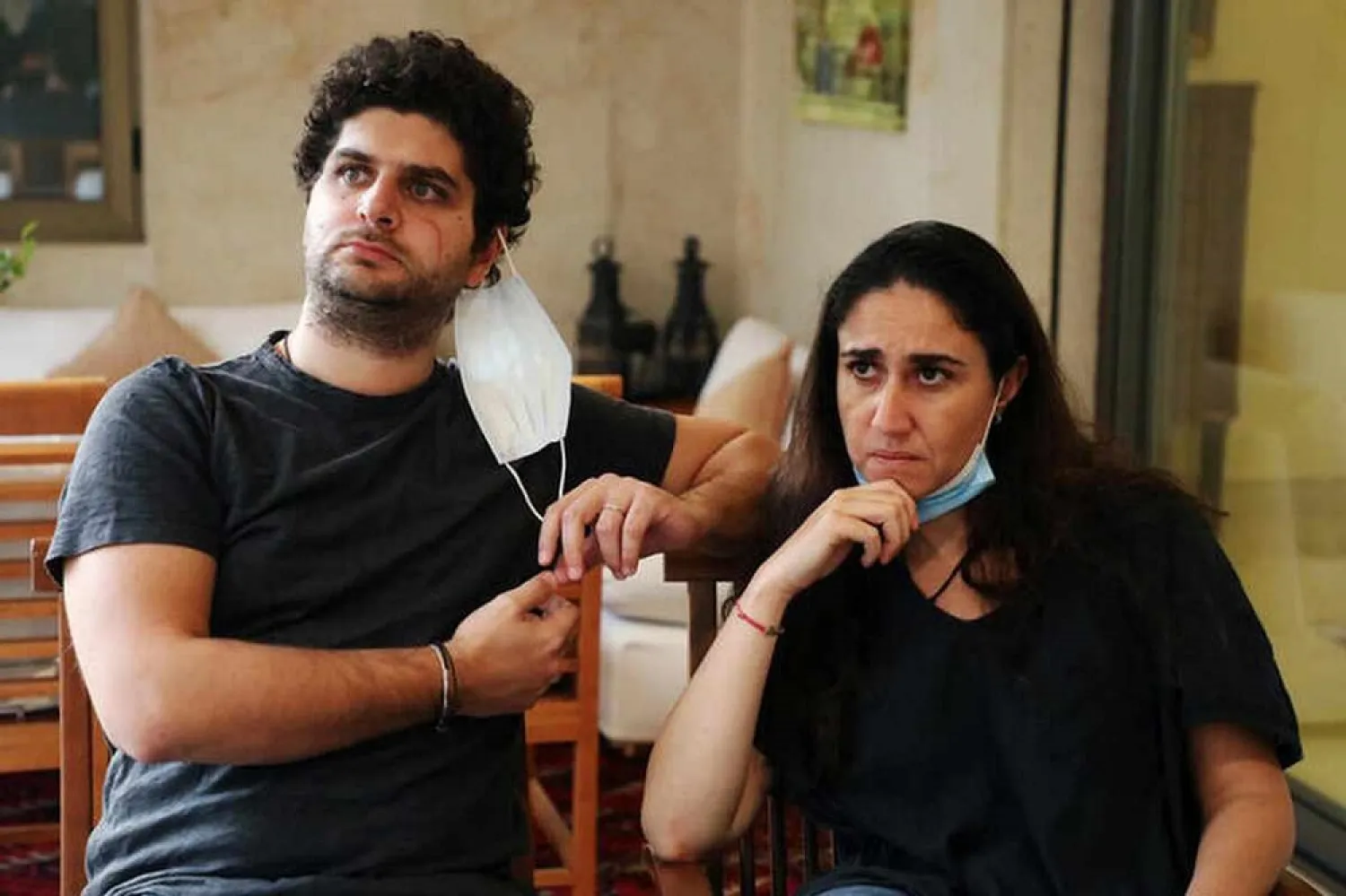Tracy and Paul Najjar believe their daughter Alexandra could have survived the Aug. 4 explosion at Beirut port if the authorities had raised the alarm on that fateful day.
As they mourn the loss of their three-year-old, one question continues to haunt them: why did no one warn residents or evacuate them as fire raged for more than half an hour close to a huge store of ammonium nitrate?
“They had 40 minutes to tell us ‘Leave Beirut! Go hide! Get away from the windows!’. They didn’t do it,” said Tracy Najjar, 34, who was at home with her family in the Gemmayzeh district when the blast at the nearby port tore through Beirut.
“They had 40 minutes to prepare for the post-blast. To prepare hospitals, to open the roads, to send doctors, to send the army, and they didn’t do it.”
Security officials reached by Reuters declined to comment on the families’ grievances and questions over why they were not prepared and did not raise the alarm.
The Aug. 4 tragedy was one of the biggest non-nuclear explosions ever recorded. It killed some 200 people, wounded thousands and devastated swathes of the Lebanese capital.
More than four months later, victims are still awaiting the result of the investigation into why 2,750 tons of potentially explosive material were stored unsafely at the port, which is surrounded by residential areas, for more than six years.
Lebanese leaders had promised it would come within days.
“Instead of grieving and trying to continue with life, we are fighting today for something that is actually our right. To find the truth. To get justice,” Najjar said.
“We didn’t give up and we will not give up.”
Their only child, Alexandra, died from her wounds five days after the blast.
It took an hour to get her to hospital because of traffic.
“If they had opened the roads, then many people would have survived, maybe Alexandra would have survived,” Najjar said.
She recalled how she could not find members of the security services to assist in the immediate aftermath and how ordinary people helped each other. Her husband, Paul, eventually made it to hospital with Alexandra on the back of a stranger’s scooter.
Weeks passed before the Najjars heard from a state official.
The first to get in touch was an army officer who asked them to take part in a commemoration to be attended by the army commander. They declined.
“For us, the president, the government, the army are all part of it and it’s a way of washing their hands,” said Paul Najjar, 36, his face scarred from the blast. Many casualties could have been avoided if the alarm had been raised, he said.
‘Betrayed, sold out’
For some, the explosion and the state’s handling of its aftermath are an indictment of politicians who have led Lebanon as it lurches from crisis to crisis.
Several senior officials have been detained, including the port’s general manager and head of customs. The judge investigating has also charged Lebanon’s caretaker Prime Minister Hassan Diab and three former ministers with negligence.
Diab, whose cabinet resigned over the August blast after taking office in early 2020, said his conscience was clear and accused the judge of breaching the constitution.
Security officials warned the prime minister and president in July that the ammonium nitrate stored at the port posed a security risk and could destroy the capital if it exploded, according to documents seen by Reuters and senior security sources.
A high-ranking security official told Reuters in August that the fire spread due to sparks from welding.
The US Federal Bureau of Investigation, which sent investigators to Beirut to help, said in October it had reached no firm conclusion about what caused the explosion.
Other US and European government agencies closely following the investigations strongly believe that the blast was accidental.
Families of some of the victims marked the four-month anniversary with a protest at the entrance to the port. “We want the results of the investigation and transparency before our patience runs out,” declared a banner.
Since the blast, and the resignation of the government shortly afterwards, powerful politicians have failed to form a new one as they haggle over who gets what position.
The familiar bickering has hampered Lebanon’s efforts to rebuild after the blast, and with longer term problems like the deepening economic crisis that has plunged millions of people into poverty.
“We have no leaders, there are a mafia,” said Rita Hitti, whose firefighter son Najib was killed along with two other family members as they battled the flames that ignited the explosives at the port.
“Those at the top should have resigned and gone home. They are still dividing up the pie, they still haven’t had enough.”
The firefighting trio - Najib Hitti, 27, his brother-in-law Charbel Karam, 37, and cousin Charbel Hitti, 21 - always did their shifts together. In his last call home, Karam told his wife Karlin they were going to the port to put out a fire.
After the explosion, the families went from hospital to hospital searching for the men, said Karlin, who must now raise their two daughters, Angelina and Catherina, alone.
Karlin said: “When asked what gift does she want Santa to bring her for Christmas, Angelina replied: ‘I want Santa to bring me my dad.’”














